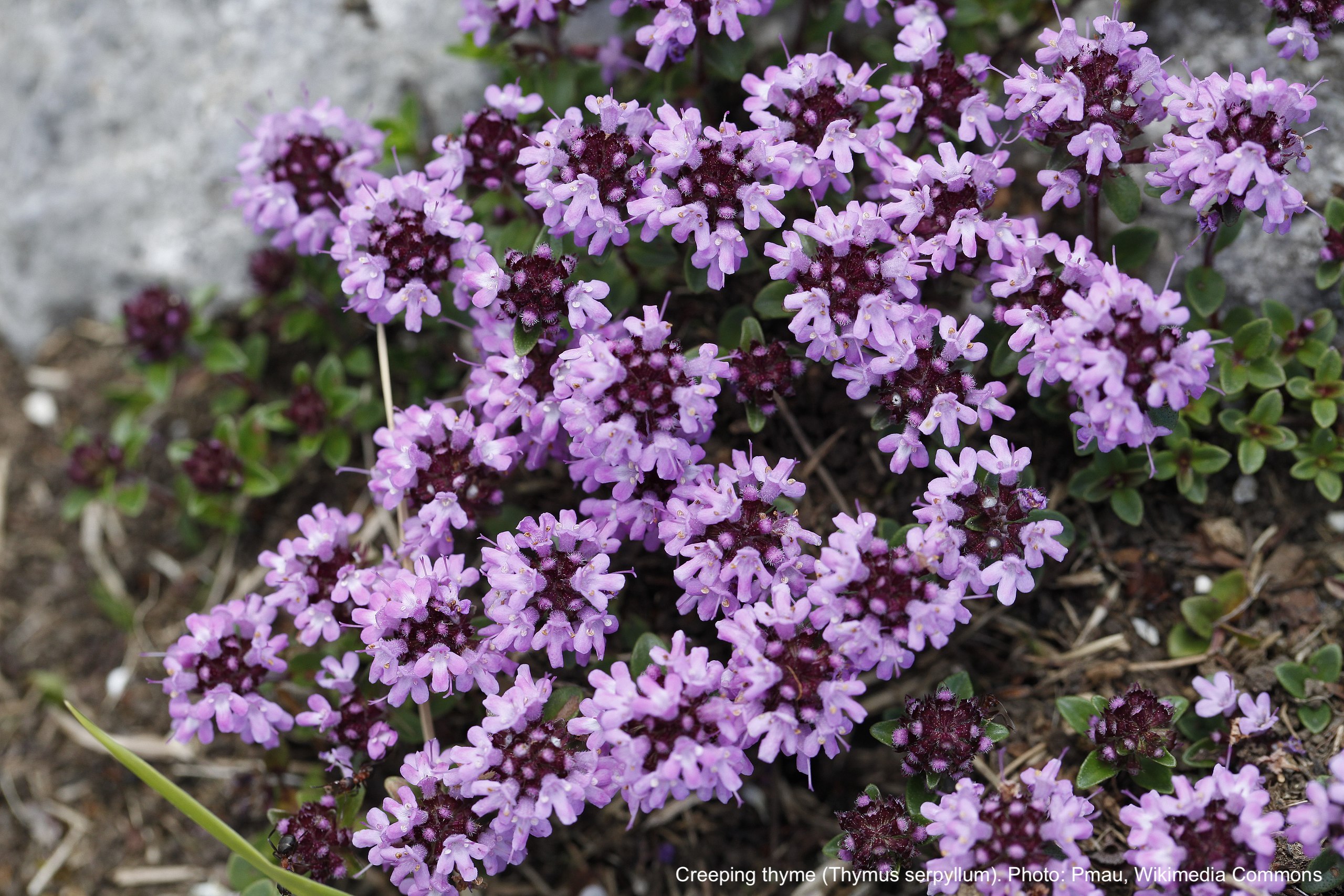

The intervention phase started at visit 1 with a 4-week supplementation of dosage I (600 mg between visit 1 and visit 2) and continued with further 4-weeks intervention with dosage II (900 mg between visit 2 and visit 3). The study included a screening investigation, followed by a 2-week run-in phase for prospective assessment of gastrointestinal parameters and 3 study visits. The study was performed as a prospective, randomized, double-blind, placebo-controlled study in a parallel dose-escalation design. Therefore, the current human pilot study aimed to investigate the impact of WThE on gut health, especially gastrointestinal symptoms and stool frequency and consistency, and gut microbiome in a healthy but overweight study collective. To our knowledge, there are no controlled studies investigating the described effects of Thymus serpyllum herb extract (WThE) in humans. and mainly contains substance groups, such as flavonoids, polyphenol acids and triterpenes. Wild thyme herb, Serpylli herba (Lamiaceae), consists of dried and flowering aerial parts of Thymus serpyllum L.

In addition, wild thyme can be a source of natural antioxidants, nutritional supplements, or components of functional foods in the food industry. Due to their non-volatile phenolic components, Thymus serpyllum preparations demonstrate spasmolytic effects, stimulate gastric juice secretion, and help digestion. Its aerial parts are most frequently used in ethnomedicine, mainly for treating illnesses and problems related to the respiratory and gastrointestinal systems, particularly for symptomatic treatment of digestive disorders such as epigastric distension, sluggish digestion, eructation and flatulence. (wild thyme) is a perennial shrub, native to areas of northern and central Europe. A recent global survey revealed the prevalence of over 40% of their populations in 33 countries on 6 continents to be affected by functional gastrointestinal disorders (FGIDs), now called disorders of gut-brain interaction. Moreover, symptoms are highly individual and underlying causes are often difficult to determine. General gut health problems, such as lower abdominal pain or belly aches accompanied by a bloated abdomen or flatulence, are common health problems in Western societies with different causes and variable outcomes. Of WThE as a food supplement with benefits on gut health. Conclusion: The data support the potential applications A decrease in the mean Firmicutes/ Bacteroidetes ratio The stool microbiome of study collective wasĬharacterized by a high Firmicutes to Bacteroidetes ratio. Gastrointestinal symptoms and increase stool frequency, thus an improved Results: The study results indicate that WThE has the potential to improve


Oil-free WThE preparation or a matching placebo was investigated. Symptoms, gut microbiome, and quality of life by employing an essential In detail, the impact on digestion, gastrointestinal Randomized, double-blind parallel arm pilot study was to explore the impact ofĪqueous Wild Thyme extract, a food supplement, in a healthy but overweight
#WILD THYME GROUP PRO#
Yet to pro ve the proposed health benefits. Background: Based on the scientific and traditional knowledge,īenefits for gut and digestive health w ere expected from Wild Thyme ( Thymus serpyllum L.) extract (WThE) consumption, but no controlled human studies were performed


 0 kommentar(er)
0 kommentar(er)
